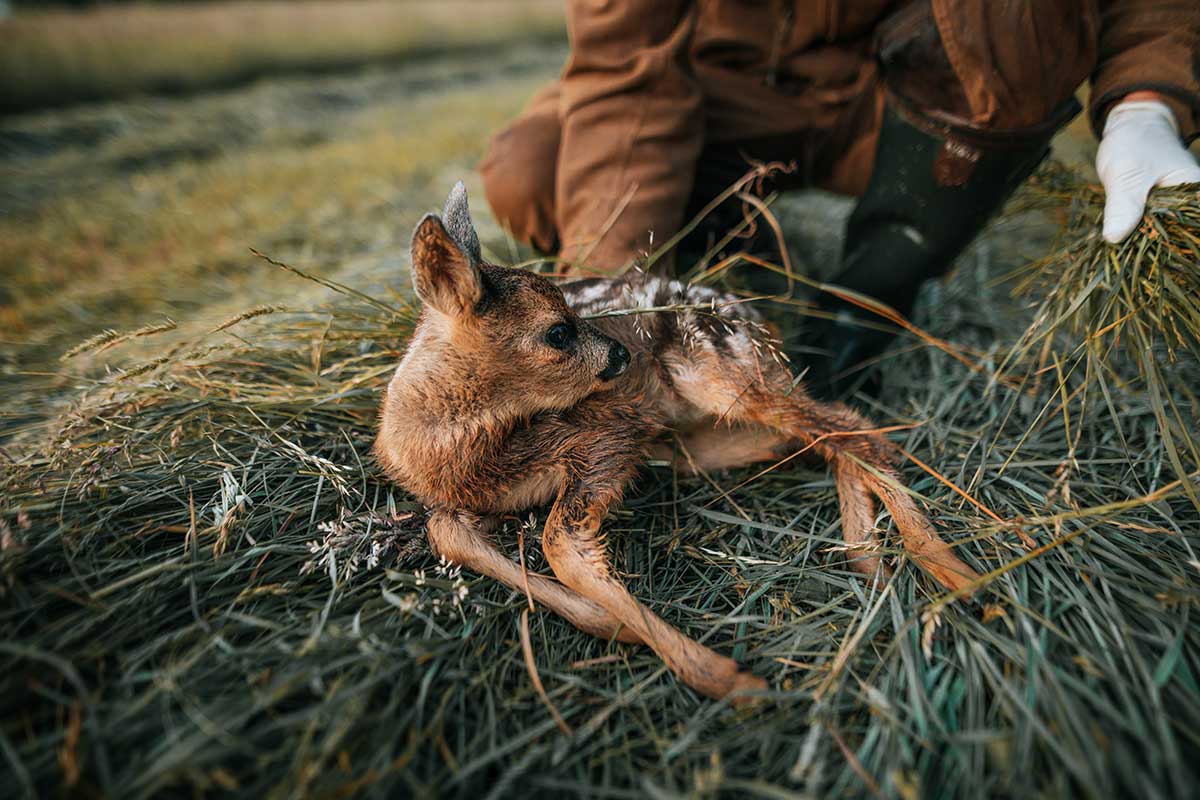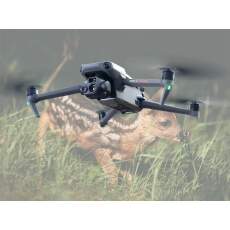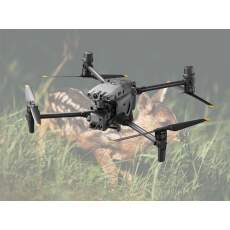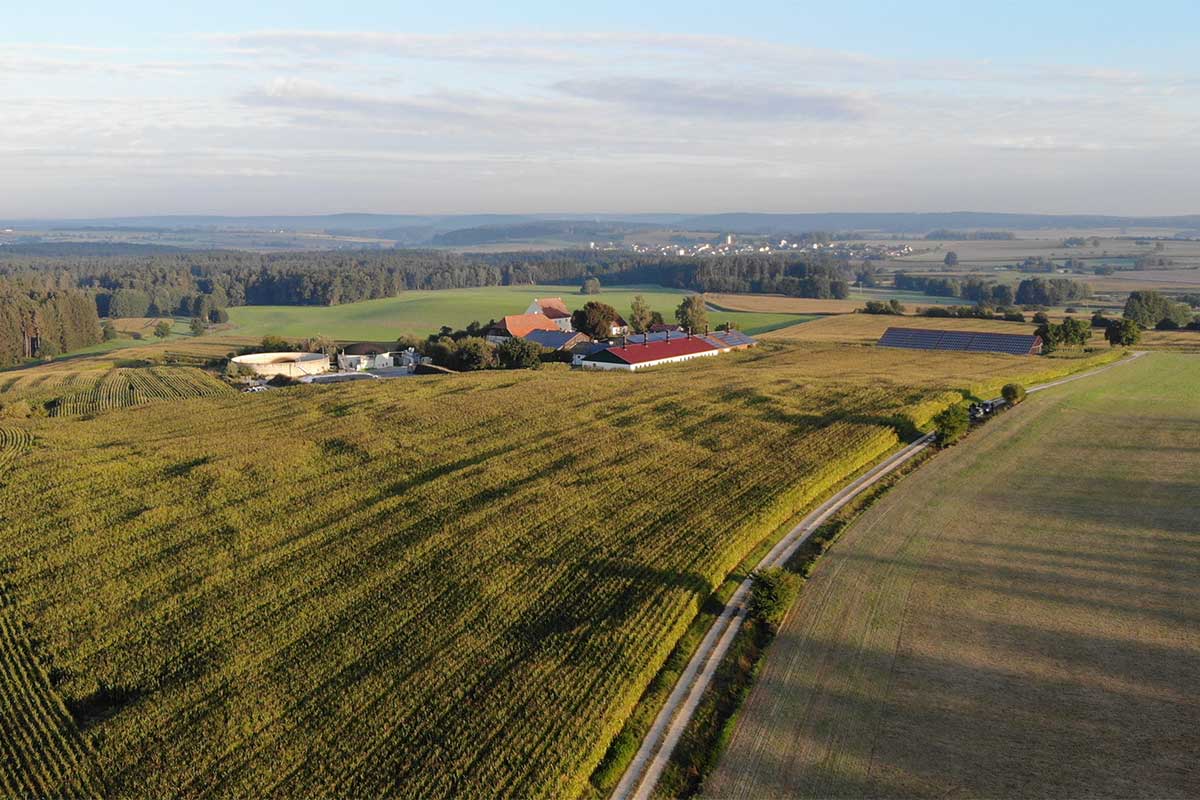Fawn rescue
The Federal Republic of Germany has given special weight to animal welfare by including it in its Basic Law. In far-reaching areas, protective measures must be taken to improve animal welfare. In accordance with the polluter pays principle, the farmer and the driver/machine operator are thus primarily responsible for searching their land. Since the search is very tedious and requires many contributors, drones have found great popularity in fawn rescue.
Important: Check with the Federal Ministry of Food and Agriculture (www.bmel.de) regarding subsidies in the procurement of drones, especially for clubs and hunting rings .
This allows drone pilots to fly over the meadows before mowing and locate fawns using thermal imaging cameras. In order for these to stand out from the ambient temperature, it is necessary to be out and about early in the morning. The image can then be displayed in real time on the modern remote control transmitter including monitor or output with a separate monitor. After locating heat signatures, helpers can then be navigated to the spot so that the fawn can be retrieved from the grass.
Through intelligent sensor technology (obstacle detection), security systems (return to home) and other intelligent functions, it is now possible for everyone to fly a drone.
Advantages of using drones:
- Time saving
- Fewer contributors needed than for the traditional departure
- Promotion of animal welfare
- Possibly state subsidies
Wild boar
Reducing the wild boar population is an important issue in agriculture and forestry in some German states. This is an important part of the fight against African swine fever. By means of drone, the heat signatures of the animals can be issued so that the drive hunt can be started.
In addition, wild boar can cause considerable damage in agriculture and forestry, which is why hunting wild boar certainly has preventive advantages (see industry solutions: field damage in agriculture).
Advantages of using drones:
- Time saving
- Fewer contributors needed than for the traditional departure
- Promotion of animal welfare
- Possibly state subsidies




